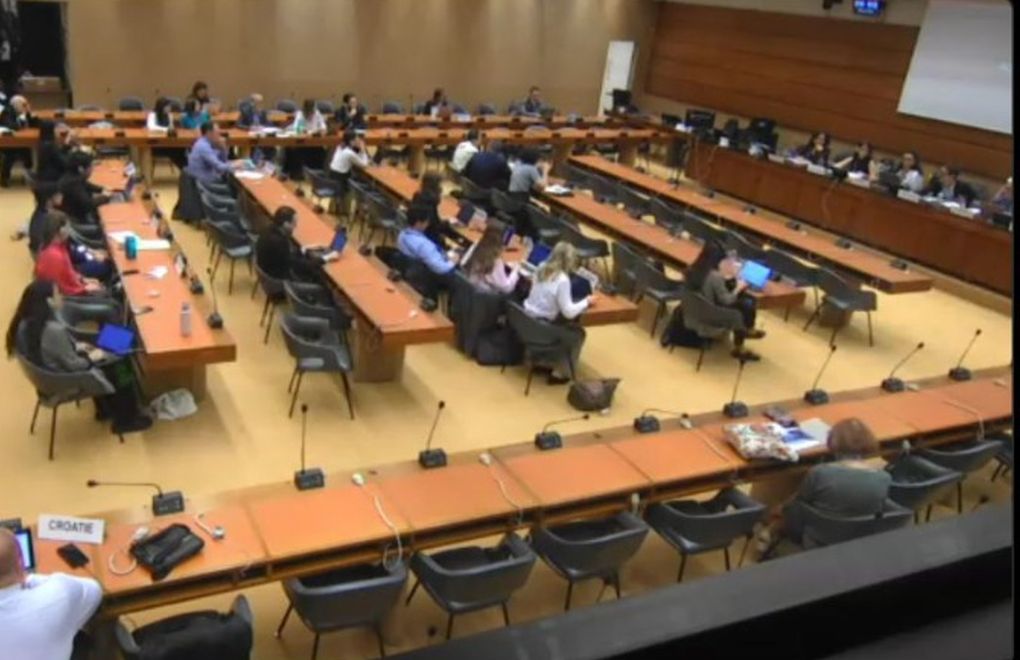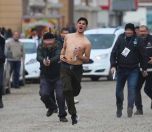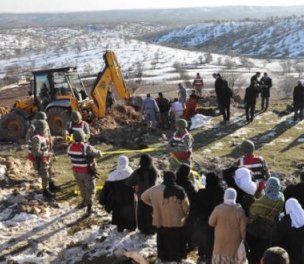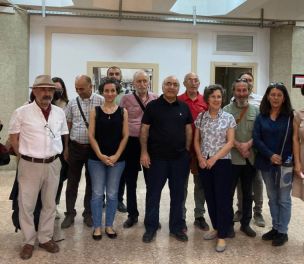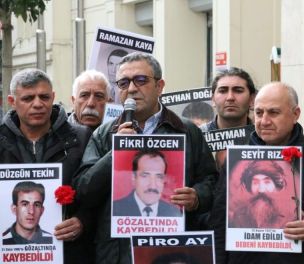Click to read the article in Turkish / Kurdish
Human rights advocates from Turkey discussed forced disappearances and arbitrary detentions in Turkey in a side event at the 54th session of the United Nations Human Rights Council in Geneva.
Speakers at the event included Coşkun Üsterci, secretary-general of the Human Rights Foundation of Turkey (TİHV/HRFT); Sebla Arcan from the Saturday Mothers/People, Rehşan Bataray Saman from the Human Rights Association (İHD), Özlem Zıngıl from the Memory Center, and Ulviyya Hasanova from the World Organization Against Torture.
Ulviyya Hasanova, the first speaker at the session, pointed out that forced disappearances in Turkey have been observed since the 1990s and after the attempted coup in 2016. She also noted that human rights defenders frequently face arbitrary detentions, citing the example of the Saturday Mothers/People.
Legal harassment
Sebla Arcan explained that the Saturday Mothers/People gathered to fight against the crime of forced disappearances in Turkey, and no results were achieved through domestic legal means.
"Our demands are clear and straightforward. The state must acknowledge its responsibility in forced disappearances, disclose the fate of the disappeared, end impunity, and ensure justice. Turkey should sign and implement the international treaty on forced disappearances."
Arcan also noted that their peaceful gatherings have been hindered by police violence, and decisions of the Constitutional Court allowing the gatherings have not been implemented. "The Saturday Mothers/People have been detained 23 times in the past 5 months, and cases have been filed against them. Human rights organizations describe this as not only a violation of rights but also legal harassment."
Impunity
Özlem Zıngıl discussed the judiciary's approach to forced disappearances. "The judiciary has been reluctant in investigations; applications were either not processed or investigations were slow and resulted in no outcome.
Zıngıl noted that cases related to forced disappearances began to be filed after 2009, with state officials being accused of "willful murder." However, these cases concluded with impunity for state officials starting in 2015. Acquittal decisions were upheld by the Court of Cassation.
Only one case was reversed during the appeal process, but the court ultimately issued an acquittal verdict, noted Sıngıl. The Constitutional Court ruled a violation in only one application. Out of the 10 cases filed, only two are still ongoing, and one case was subject to a statute of limitations decision.
Rehşan Bataray Saman discussed the increase in forced disappearances, particularly targeting Kurdish citizens, following the 1980 coup. She remarked, "The files of forced disappearances were closed with impunity and continue to be closed. Even after 8 years, perpetrators of the murder of Diyarbakır Bar Association President Tahir Elçi have not been punished."
Escalated violations
Coşkun Üsterci emphasized that systematic human rights violations have escalated since 2015, especially following renewed conflict and the declaration of a state of emergency after the 2016 coup attempt. He mentioned numerous cases of detentions and arrests based on membership in illegal organizations, which resulted in prosecutions and investigations.
"In a period when the principle of the separation of powers was abandoned, and judicial independence ceased to exist, imprisonment became the primary means of governance for the government.
"Due to the arbitrary decisions of the courts, the application of judicial control measures as an alternative to arrest has become a continuation of arrest. The number of individuals under judicial control measures and in prisons has reached a total of about 700,000 people. For a society claiming to be democratic, this is an unacceptable figure." (AS/VK)




